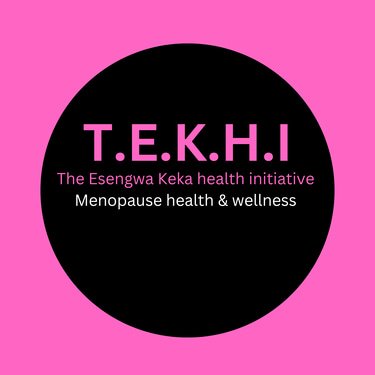Raising Awareness: Current Trends in Perimenopause and Early Menopause in Africa
Despite these challenges, community health initiatives and non-governmental organizations (NGOs) have stepped in to bridge these gaps. These initiatives provide education on menopause, distribute essential supplies, and offer subsidized healthcare services. Notably, the emergence of mobile health clinics and telemedicine services has been a game-changer. Mobile clinics travel to underserved areas, providing vital screenings and treatments directly to women who might otherwise go without care. Telemedicine allows women to consult with healthcare providers remotely, reducing the need for travel and expanding access to specialized care......


Changing Perceptions and Increasing Awareness Among the General Population
The awareness surrounding perimenopause and early menopause is witnessing a notable surge among the general population in Africa. This shift is largely attributable to the enhanced accessibility of information facilitated by social media, community programs, and active women's advocacy groups. These platforms have been instrumental in disseminating knowledge, challenging societal norms, and fostering a more informed and supportive environment regarding these significant life stages.
One of the profound changes is the evolution of societal attitudes. Historically, conversations about perimenopause and early menopause have been constrained by cultural taboos and a lack of understanding. However, through dedicated efforts, there is now a burgeoning openness in discussing these topics. Women's advocacy groups have been at the forefront of this transformation, using various media to amplify their messages. Social media platforms, in particular, have emerged as powerful tools for education and empowerment. These digital spaces have enabled women to find communities where they can share their journeys, seek advice, and provide support to one another.
Real-life stories play a pivotal role in this newfound awareness. Women across Africa are stepping forward to break the silence around their experiences with perimenopause and early menopause. Platforms such as radio talk shows, blogs, and community gatherings have become avenues for these women to share their narratives. These stories not only serve to educate the broader public but also help in normalizing the conversation and reducing the stigma associated with these experiences. For instance, participation in radio talk shows allows for real-time interaction and engagement with a diverse audience, thereby fostering a deeper understanding and empathy.
Influential African women, including celebrities and activists, have significantly contributed to this movement. Their involvement brings heightened visibility to the cause and encourages a wider acceptance of discussions on perimenopause and early menopause. By sharing their personal experiences and advocating for increased awareness, these figures play a crucial role in paving the way for more open and informed conversations. Their endorsement of such topics not only normalizes them but also inspires others to participate actively in these essential dialogues.
Healthcare Professionals' Evolving Approach to Perimenopause and Early Menopause
In recent years, there has been a notable shift in how healthcare professionals in Africa address perimenopause and early menopause. This transformation is largely driven by enhanced medical training and continuing education programs that emphasize the critical importance of recognizing, diagnosing, and managing these conditions. As a result, healthcare providers are now better equipped to offer comprehensive care and support to women undergoing these changes.
One of the significant developments has been the establishment of specialized clinics and workshops focused on menopausal care. For instance, in countries such as Kenya and South Africa, doctors and nurses are setting up dedicated menopause centers, providing a sanctuary for women to access tailored medical advice and treatment plans. These initiatives are often spearheaded by healthcare professionals who have undergone advanced training in hormonal health, ensuring that patients receive the most up-to-date and effective care.
Collaborations between local healthcare providers and international organizations have also played a crucial role in enhancing resources and support for women experiencing perimenopause and early menopause. Partnerships with entities like the World Health Organization (WHO) and non-governmental organizations (NGOs) have facilitated the distribution of educational materials and the implementation of community outreach programs. These efforts help to spread awareness and reduce the stigma associated with menopausal symptoms, encouraging more women to seek help.
Despite these advancements, significant challenges remain, particularly regarding cultural stigmas within the medical community. In many parts of Africa, menopause is still viewed through a lens of cultural taboo and misinformation. However, progress is being made as healthcare professionals increasingly advocate for a shift in perception, promoting the understanding that menopause is a natural and manageable phase of life. Continued efforts in education and awareness are vital to dispel myths and foster a more supportive environment for menopausal women.
Overall, the evolving approach of healthcare professionals in Africa towards perimenopause and early menopause marks a promising stride in improving women's health and well-being across the continent.
Impact of Socioeconomic Factors and Accessibility to Healthcare Services
Socioeconomic factors play a critical role in shaping the awareness and treatment of perimenopause and early menopause in Africa. Disparities in healthcare access between urban and rural areas contribute to widely varied experiences for women across the continent. In urban centers, women often have better access to healthcare facilities, yet they still might face significant challenges linked to economic barriers. The cost of specialized care and hormone replacement therapy can be prohibitive for many women, making regular treatment unattainable.
Conversely, in rural areas, the obstacles are even more pronounced. Women in these regions often have to travel long distances to reach the nearest medical facility. For instance, a woman from a remote village might need to journey several hours to consult a qualified healthcare professional, which can be both financially and physically draining. In the absence of accessible medical facilities, some women turn to traditional healers, who may not have the expertise to manage perimenopause and early menopause effectively, potentially exacerbating health issues.
The economic challenges are significant. Many women lack the financial resources to seek medical care, as they may be from low-income families or communities where healthcare spending is not prioritized. This financial constraint prevents timely diagnosis and treatment, worsening the quality of life. Furthermore, limited education on menopause contributes to a lack of awareness and understanding, leading to delayed treatment and inadequate management of symptoms.
Despite these challenges, community health initiatives and non-governmental organizations (NGOs) have stepped in to bridge these gaps. These initiatives provide education on menopause, distribute essential supplies, and offer subsidized healthcare services. Notably, the emergence of mobile health clinics and telemedicine services has been a game-changer. Mobile clinics travel to underserved areas, providing vital screenings and treatments directly to women who might otherwise go without care. Telemedicine allows women to consult with healthcare providers remotely, reducing the need for travel and expanding access to specialized care.
In conclusion, addressing the socioeconomic barriers and enhancing accessibility to healthcare services are paramount to improving the lives of women experiencing perimenopause and early menopause in Africa. Initiatives that reduce economic burdens and leverage innovative healthcare delivery models hold the promise of a more equitable health landscape.
www.tekhiglobal.com
info@tekhiglobal.com
